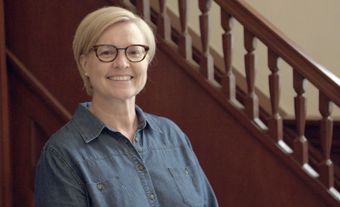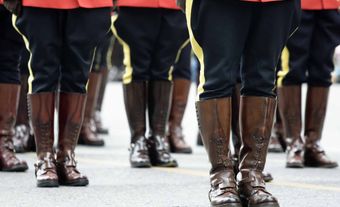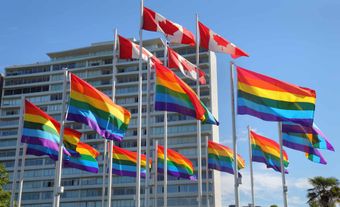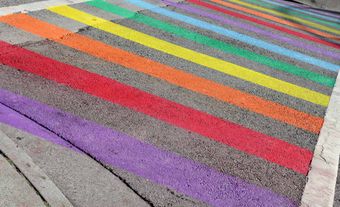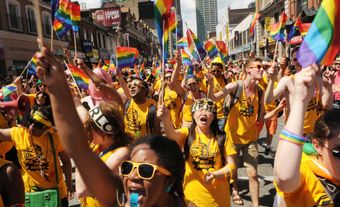We Demand was a 13-page document that called for changes to discriminatory federal laws and policies concerning gays, bisexuals, and lesbians in Canada. The brief, which contained ten points, was presented to the federal government in 1971. It set a national strategy that was pursued for decades until all the demands were met.
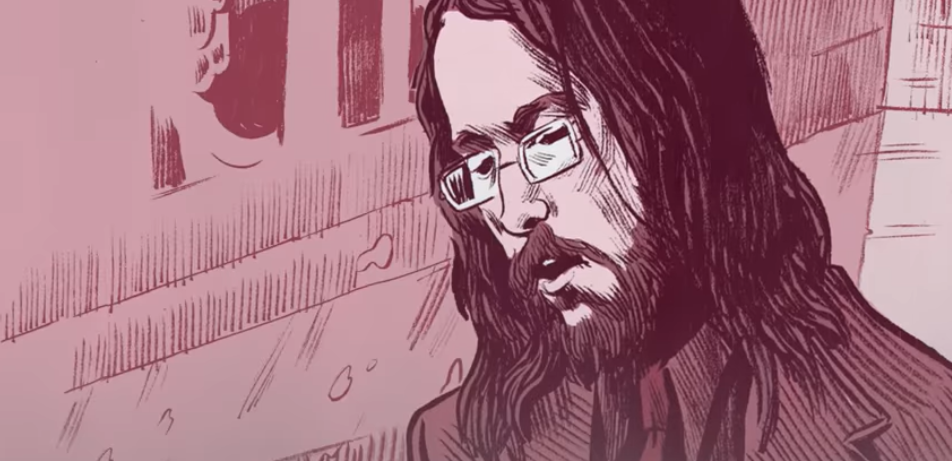
Background
We Demand was sponsored by twelve of the earliest LGBTQ groups in Canada that helped launch the country’s gay liberation and lesbian feminist movements. These organizations formed in the wake of 1969 amendments to sodomy and gross indecency provisions that had been used to prosecute gay men, bisexuals, and lesbians. From the earliest days of colonization in Canada, sexual acts between men (and later women) had been illegal. As a result of the 1969 amendments, sexual acts between two men or two women became legal under some circumstances. Nevertheless, many sections of the Criminal Code continued to discriminate against people identifying as LGBTQ.
A letter accompanying the We Demand brief stated: “In our daily lives we are still confronted with discrimination, police harassment, exploitation, and pressures to conform which deny our sexuality. That prejudice against homosexual people pervades society is, in no small way, attributable to practices of the Federal government.” The letter further highlighted the threat to all members of a society that tolerates discrimination by concluding, “In a democratic society, if one minority is denied freedom, all citizens are oppressed.”
The Demands
The ten demands called for:
- The removal of the terms “gross indecency” and “indecent acts” from the Criminal Code and their replacement with specific offences applied equally to homosexual and heterosexual acts.
- Removal of “gross indecency” and “buggery” as grounds for indictment as a “dangerous sexual offender.”
- Mandating a uniform age of consent for “homosexual” and heterosexual acts.
- Amendments to the Immigration Act, 1952, which barred “homosexuals” from entering Canada or applying as immigrants or permanent residents. People with a “constitutional psychopathic personality” were also denied entry, a category that included “homosexuals.”
- The right to equal employment and promotion at all government levels.
- Amendments to the Divorce Act, 1968, which placed sodomy and homosexual acts in the same category as physical or mental cruelty, bestiality, and rape as grounds for divorce.
- Deciding child custody based on the merits of individual parents, irrespective of the sexuality of the parent. In practice, courts often denied gays and lesbians custody of their children.
- To know whether it was the RCMP’s practice to spy on and identify gays and lesbians in the federal government in order to purge them from employment and if so, to end this practice and destroy all records. (This was indeed RCMP policy at the time. See Canada’s Cold War Purge of LGBTQ from the Civil Service.)
- The right of gays, lesbians and bisexuals to serve in the armed forces. (See also Canada’s Cold War Purge of LGBTQ from the Military.)
- Amendments to human rights laws so that they extended the same privileges and freedoms enjoyed by the rest of society to gays, lesbians, and bisexuals. (We Demand did not address gender identity and therefore the rights of the trans community.)
One of the authors of these demands, Herbert Spiers, later recalled that they practically “wrote themselves because they were obvious and just.” Nevertheless, the demands were considered so radical for their day that they amounted to a call for a “social revolution.”
We Demand Rally
On 28 August 1971, activists and their supporters assembled on Parliament Hill in Ottawa, accompanied by a smaller group demonstrating in Vancouver. Their goal was to publicize the We Demand brief. These gatherings were Canada’s first large-scale public LGBTQ demonstrations (about 100 to 200 people in total). Charlie Hill, of the group Toronto Gay Action, spoke at the Ottawa rally:
Today marks a turning point in our history. No longer are we going to petition others to give us our rights. We’re here to demand them as equal citizens on our own terms.
Response
Despite public demonstrations supporting the We Demand agenda, the movement was seen to represent a small minority of the LGBT community. Only a few months after We Demand launched, The Body Politic published its first issue, including the article “A Program for Gay Liberation.” The periodical would become Canada's leading gay liberation publication in the 1970s and 80s. The article summarized the problem faced by activists as follows:
As long as we are considered or are seen to represent only a small minority of our own people the government, the media, churches, educational system, etc. will all carry on business as usual.
The We Demand agenda had little public or government support in the 1970s. One activist group, Gays of Ottawa, noted that legislators demonstrated a “flagrant disregard for the oppression faced by the homosexual minority.” Progress for the agenda was further undermined by fears of people in the LGBTQ community of retaliation from the public or authorities if they stood up for their rights. Some were hostile to the cause. As one exasperated reader of The Body Politic wrote in 1978:
If you think that by publishing articles that infuriate the public and create a backlash against us you are doing us a service, you had better think again. […] It may surprise you to know that most of us prefer to keep a low profile about our sexual preferences, and don’t need noisy idiots like you to harm us. Why don’t you just shut up?
Successes, Challenges and Legacy
Progress was slow. In 1973, Toronto became the first municipality to ban discrimination in city employment on the basis of sexual orientation, followed by Ottawa and Windsor in 1976. We Demand’s first and only national victory in the 1970s was the passage of the Immigration Act, 1976, which came into effect in 1978 and ended the prohibition of homosexual immigrants or visitors. In 1977, Quebec became the first province to ban discrimination on the basis of sexual orientation. As the 1970s ended, most of We Demand’s goals hadn’t been achieved.
At the beginning of the 1980s, however, a new era of political organizing emerged, breathing new life into the cause. It happened literally overnight. On the evening of 5 February 1981, Toronto police conducted a series of violent bathhouse raids involving hundreds of arrests. The raids ignited a large and angry protest the next evening by the city’s LGBTQ community that attracted national attention and sympathy. More protests followed. For the first time, a large cross-section of the LGBTQ community was willing to stand up and fight for their rights. This backlash created a new and lasting environment of activism, public protests, and legal challenges that eventually led to a repeal of all laws and policies targeted by We Demand.

 Share on Facebook
Share on Facebook Share on X
Share on X Share by Email
Share by Email Share on Google Classroom
Share on Google Classroom
